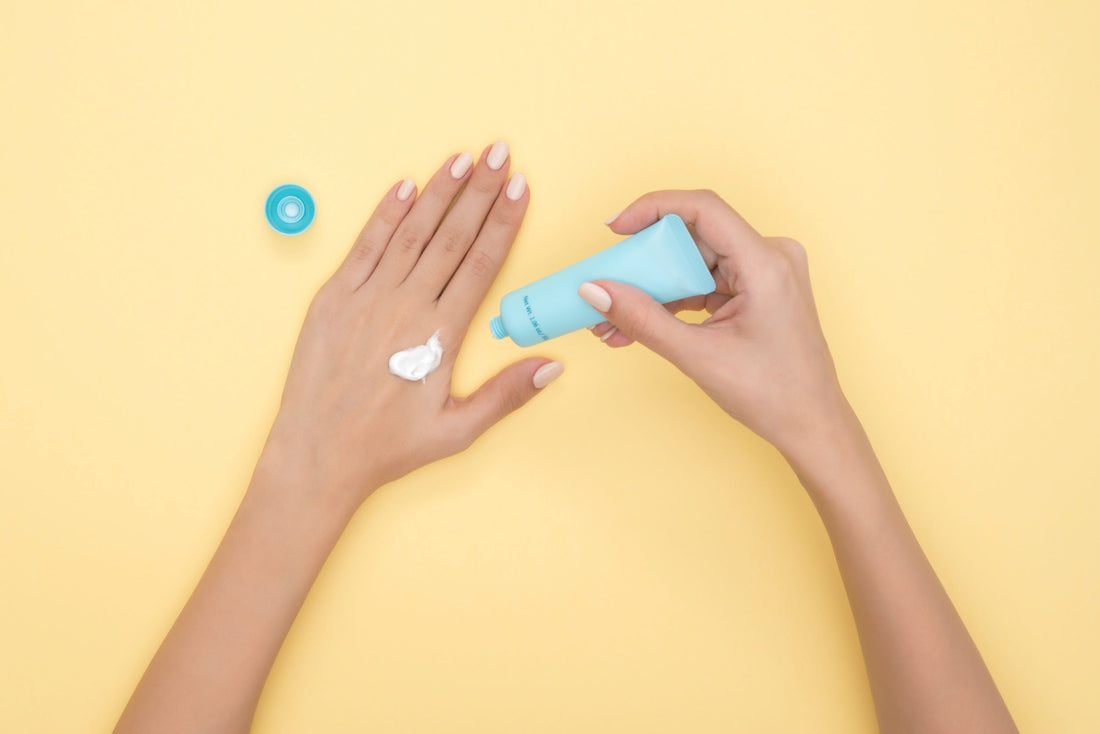
Emollients, Humectants, and Occlusives: What's the Difference?

Many people select the moisturizers they’ll include in their skincare regimen based on their brand name or marketing claims. However, there’s more to moisturizers than what meets the eye.
There are actually different types of moisturizers, and their effectiveness varies depending on your skin’s type and needs. These types can be broken down into three primary categories: humectant, emollient, and occlusive. As we know, moisturizer is only a generic term that includes a wide array of gels, lotions, topical creams, and emulsions.
Now, how do you identify which one will work wonders for your skin? In this article, we’ll tackle the importance of keeping your skin moisturized, why you should know your skincare ingredients, and the three main types of moisturizers to help guide you in choosing your best skincare arsenal.
Why your skin needs to stay moisturized
We all know that a moisturizer can help keep our skin refreshed and hydrated. But aside from these benefits, did you know that it can also help your skin stay young? A moisturizer helps repair your sensitive skin to keep it healthy and boosted. It likewise fights wrinkles, keeps your skin smooth and supple, and reduces your possibility of experiencing skin concerns like oily or dry skin and acne.
As we age, our skin also loses natural moisturizing factors like hyaluronic acid and lipids like cholesterol, fatty acids, and ceramides, which ensure that our protective skin barrier remains intact. With moisturizers, you get to help improve the appearance of your skin while safeguarding it from possible damage that may be caused by a compromised skin barrier.
Three types of moisturizers and their anatomy
Humectants
What they are: A humectant is a hygroscopic substance that pulls water from your dermis to your epidermis and stratum corneum where dehydration occurs. It attracts water to itself and slows down water evaporation from your skin. Likewise, it draws water vapor from the air to keep your skin moisturized especially if the humidity level is over 50 percent.
Aside from keeping your skin moisturized, a humectant also stimulates desquamation or the shedding of dead skin cells. It does this by breaking down the proteins holding these cells together. Likewise, humectants offer temporary anti-aging effects because with better hydration comes better volume, effectively makes the skin look plumped out, and makes lines and wrinkles less evident. Note though that this effect is only transitory. Once your skin’s moisture content plummets, lines and wrinkles may return to their normal size and appearance.
Best to use: Humectant products are light and can be absorbed quickly into the skin. They are ideal to use during summer.
Humectants are suitable for all skin types, but best for people with normal to slightly dry skin.
Example skincare ingredients: Hyaluronic acid, glycerin, aloe vera, water-soluble chemical exfoliants like lactic acid), urea, alpha-hydroxy acids (AHAs), amino acids, honey, peptides, and sugar alcohols.
Emollients
What they are: Emollients are moisturizing substances applied directly to your skin to hydrate it, soften and soothe it, and decrease its itching or flakiness. They fill in the gaps between your skin cells with lipids and hydrating oils to create a smoother skin surface and repair your skin barrier function. These elements stay on your skin’s surface and help it hold the humectants you use.
Emollients are typically thicker and richer than humectants. Their goal is to not only smoothen but also repair any skin surface damage.
Best to use: Emollients are ideal for dry, oily, and aging skin since they help as they can help rebuild your skin’s natural barrier, also reducing the appearance of fine lines and wrinkles. These are also a great option to soothe eczema-prone skin.
Example skincare ingredients: oils, cocoa and shea butter, lipids, fatty acids, ceramides, esters, colloidal oatmeals, jojoba oil, and rosehip oil.
Occlusives
What they are: Occlusives are a moisturizing agent that works by forming a protective coating on your skin's surface to trap moisture and prevent water from evaporating. They typically have larger molecules, so instead of attracting water, they repel it.
Similar to emollients, occlusives seal moisture into your skin. The noticeable difference between the two is that occlusives, which have a thicker consistency, aren’t absorbed into the skin, hence causing a heavier feel on the skin.
Best to use: Because occlusive moisturizers have a thick and heavy consistency that forms a protective barrier on the skin’s surface, they are the best go-to options for people with severely dry and damaged skin as well as those with skin conditions like eczema and psoriasis.
Should you have acne-prone skin and you want to use this moisturizer type, make sure to check the ingredients and see if they’re non-comedogenic. Otherwise, you may end up with clogged pores and breakouts.
Example skincare ingredients: Beeswax, shea butter, lanolin, olive and soybean oils, dimethicone, mineral oil, silicones, and petrolatum
Which one is best for my skin?
Now that you’ve already figured out the difference between humectant, emollient, and occlusive moisturizers, we’re sure that you can already weigh the advantages and disadvantages of each skin type. However, remember that each of them consists of different ingredients that serve different purposes. Therefore, one type isn’t necessarily better than the others.
To know what doesn’t work and what’ll work best for your skin, make sure to reevaluate your current skincare regimen, consider your skin type, identify possible skin concerns, heed the usage tips above, and consult a dermatologist or skin specialist. If you also want to do skincare safely and reduce your CO2 emissions at the same time, you can opt for genuinely natural and harmful-chemical-free products. This way, you can be assured that you only feed your skin all things natural and good.
Finally, if you want to try biohacking wellness and skincare, one good approach is to find a product that combines these three types in one formula. This way, you can also help optimize your skin health as you enjoy the product’s benefits.
